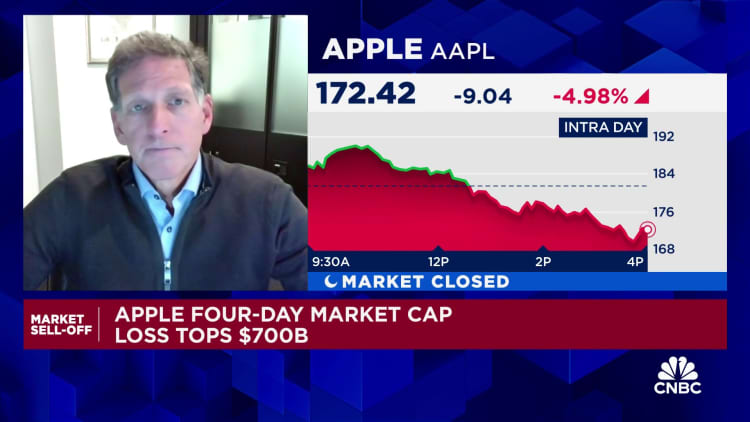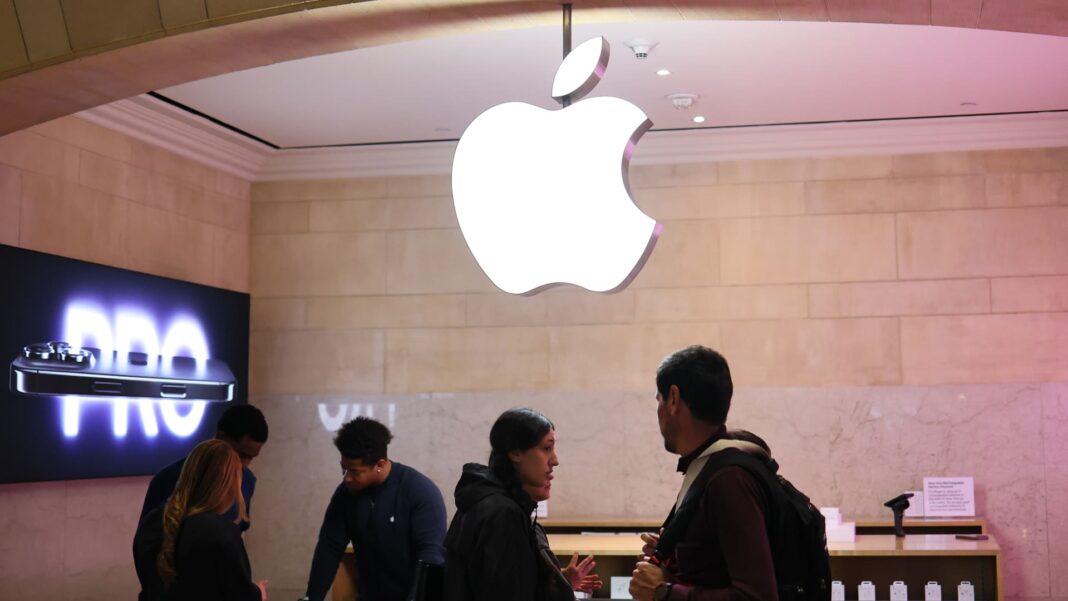## The Apple Cart Tipping: China Trade Crisis Sends Shockwaves Through Tech Industry
For years, Apple’s relationship with China has been a delicate dance. A symbiotic partnership built on billions of dollars in revenue and access to a vast, hungry market. But now, whispers of a fracture are turning into a deafening roar. Experts are stunned as the crisis in Apple-China trade intensifies, throwing the future of the tech giant – and the global economy – into uncertainty. This isn’t just another supply chain hiccup; it’s a seismic shift that threatens to rewrite the rules of the game.

The Potential Impact of Tariffs on Apple’s Profit Margins
As the trade tensions between the United States and China continue to escalate, Apple is facing an unprecedented crisis. The tech giant relies heavily on supply chains in China, which has seen its levies only continue to ramp up, with the U.S.’ cumulative tariff rate on Chinese goods now standing at 145%. This has raised concerns about the potential impact on Apple’s profit margins.
According to Le Xuan Chiew, research manager at Omdia, the current tariff rate has significant implications for Apple’s pricing. “When the original China tariffs were at 54%, that kind of impact was serious, but manageable … but, it wouldn’t make financial sense for Apple to raise prices based on the current tariffs,” Chiew said.
The Need for Urgent Action to Mitigate the Effects of Tariffs
Experts are urging Apple to take immediate action to mitigate the effects of tariffs. “Apple could be set back many years by these tariffs,” said Dan Ives, global head of technology research at Wedbush Securities. “The company had ‘had their boat flipped over in the ocean with no life rafts’.”
- Apple could be forced to increase its prices on phones sold to the U.S. from China by around 85% in order to maintain its margins, according to Omdia.
- This would have a significant impact on Apple’s sales and revenue, potentially leading to a decline in customer demand.
As the situation continues to unfold, Apple’s ability to adapt to the changing landscape will be crucial. The company has been diversifying its supply chain from China for years, but it still relies heavily on the country for a significant portion of its production.
The Consequences for Apple and Its Customers
The Potential Price Hike for Apple Phones in the U.S.
If Apple is forced to increase its prices on phones sold to the U.S. from China, customers could face a significant increase in the cost of their devices. According to Omdia, the estimated increase in price due to tariffs could be around 85%.
This would have a significant impact on Apple’s sales and revenue, potentially leading to a decline in customer demand. The tech giant’s ability to maintain its competitive edge in the market will be crucial in this regard.
- The estimated increase in price would add around $200-$300 to the cost of each iPhone, depending on the model.
- This would make Apple’s devices significantly more expensive than those of its competitors, potentially leading to a decline in sales.
- Apple’s ability to innovate and adapt will be crucial in maintaining its competitive edge in the market.
- The company will need to invest in new technologies and expand its product offerings to stay ahead of its competitors.
The Effect on Apple’s Global Competitiveness
The escalating trade tensions between the United States and China have raised concerns about Apple’s global competitiveness. The company faces significant challenges in maintaining its market share in the face of increased competition from other tech giants.
To stay ahead, Apple will need to innovate and adapt to the changing landscape. This could involve diversifying its supply chain, investing in new technologies, and expanding its product offerings.
Conclusion
In conclusion, the intensifying crisis in Apple’s China trade has left experts stunned and investors on edge. As discussed in the article, the key points of contention revolve around the escalating trade tensions between the US and China, the impact of COVID-19 on global supply chains, and the rising competition from domestic Chinese tech giants. The main arguments presented highlight the vulnerability of Apple’s business model, which relies heavily on Chinese manufacturing and consumer markets. The significance of this topic cannot be overstated, as it has far-reaching implications for the global tech industry, international trade, and the world economy. The crisis has already started to manifest in the form of production delays, shipment disruptions, and declining sales, which could have a ripple effect on the entire tech ecosystem.
The implications of this crisis are multifaceted and will likely be felt for years to come. As the world’s two largest economies continue to engage in a trade war, the consequences for Apple and other multinational corporations will be severe. The company’s ability to navigate this complex landscape and adapt to the changing global trade environment will be crucial to its survival. Looking ahead, it is likely that Apple will need to diversify its supply chain, invest in emerging markets, and develop new strategies to mitigate the risks associated with its China trade. Furthermore, the crisis may also accelerate the trend of deglobalization, as companies begin to prioritize domestic production and reduce their reliance on international trade. As the situation continues to unfold, one thing is certain – the future of Apple’s China trade will be shaped by the company’s ability to innovate, adapt, and evolve in the face of unprecedented challenges.
As we move forward, it is essential to recognize that the Apple China trade crisis is not just a company-specific issue, but a symptom of a broader systemic problem. The interconnectedness of the global economy means that the consequences of this crisis will be felt far beyond the tech industry. As we ponder the future of international trade, globalization, and the role of multinational corporations, we are reminded that the stakes are high, and the outcome is far from certain. In the words of a renowned economist, “The future of global trade is at a crossroads, and the path we choose will determine the course of history.” As the world watches with bated breath, one thing is clear – the Apple China trade crisis is a wake-up call for businesses, governments, and individuals to reexamine their assumptions about the global economy and the interconnected world we live in.
